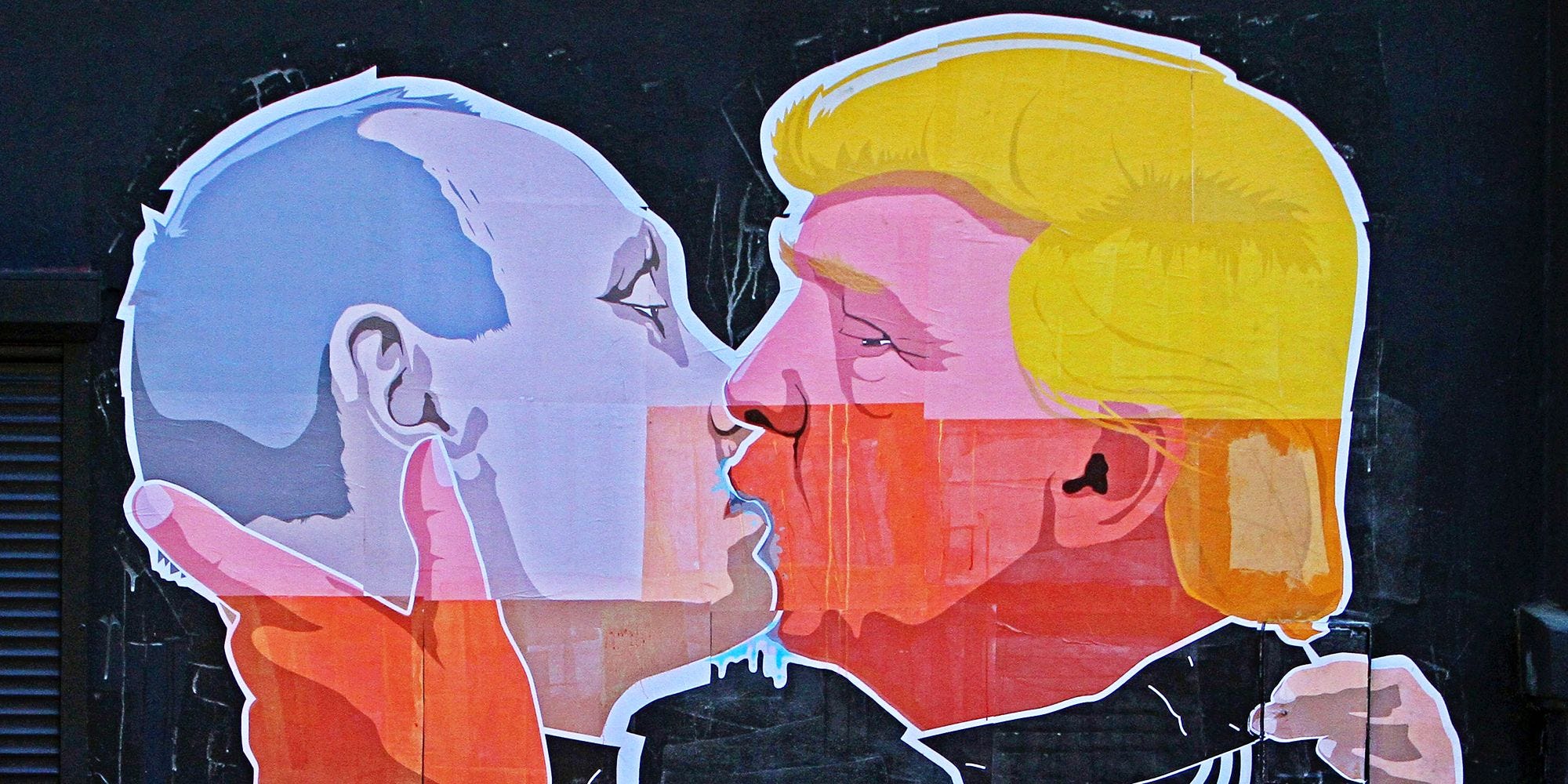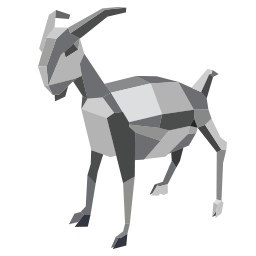With so much bravery and inspiring leadership in Ukraine, it seems almost crass to turn one’s attention to the political fate of our Putin-loving former president.
But here goes anyway: Will Donald Trump’s longtime bromance with Vladimir Putin come back to haunt him or is that wishful thinking? It’s hard to say right now but Trump has certainly offered us some good ammo to use against him.
When given a chance to walk back his appalling pre-invasion comments that Putin is a “genius” and his invasion plan was “smart” and “very savvy,” Trump doubled down (“Putin is smart”) and began arguing that he was tough on Russia all along and Biden is a pushover.
His audacious Orwellian aim is to make everyone forget about how he was impeached in part for withholding weapons that Ukrainian President Volodymyr Zelensky desperately needed to defend himself against Russia.
Plenty of people will forget—or pretend to, like Mississippi Governor Tate Reeves, who offered a lavish introduction of Trump at an RNC retreat last weekend.


I defer to Stuart Stevens about the twisted pathologies of the GOP. But I continue to hold out hope that Trump’s particular form of narcissism will hurt him politically—if not in the 2024 Republican primaries, then in the general election.
My hope rests on the history and intensity of the bromance. Notice how Trump’s position is to criticize the invasion without ever mentioning Putin by name—the exact same straddle employed last week by top Russian oligarchs who oppose the war but also dare not criticize Putin directly. The difference is that the oligarchs fear him—and Trump reveres him. That unshakable reverence is his Achilles Heel.
Even stolid Mike Pence gets that. He threw down the gauntlet on March 4, saying that “there is no room in this party for apologists for Putin.” Pence isn’t likely to win the Republican nomination, but he has set the new terms of the debate.
Consider Lindsey Graham’s comment about Trump calling Putin a “genius.” Unlike Tom Cotton and others too cowardly to comment, Graham felt obliged to criticize it. “I think that was a mistake. I think I know what he was trying to say, you know, going into the Donbas," Graham said, as if that somehow gave Trump a permission slip to slobber over Putin. “Let’s just make it clear, Putin’s not a genius, he’s a war criminal.”
Yes, that is clear, but even now Trump cannot bring himself to say anything critical about the man. This is not sustainable. He can bob and weave and pivot to attacking Biden. He can say ridiculous stuff like the U.S. should paint its warplanes with China’s flag so the Russians blame China for the bombs dropped on them. He can try to distract us with bat shit crazy antics we can’t yet imagine.
But Trump has a problem: large numbers of Republicans now loathe Putin. Just as he has to worry about wandering too far from his base by advocating Covid vaccination (remember the booing?), he clearly needs to engage in some ritual Putin-bashing just to keep his supporters in harness.
But no. Trump is determined to maintain a labored distinction between the Russian military (bad) and Putin himself (no comment). The New York Post, one of Trump’s biggest supporters, isn’t buying it. Its headline read: “Trump calls Ukraine a holocaust but doesn’t condemn Putin.“
Over time, this almost-comic straddle won’t work. Even friendly interviewers will feel obliged to question Trump about his past comments on Putin. Anything less risks them being called “Putin apologists” too.
Even if political logic dictates it, I don’t think Trump will ever back away from Putin—for several reasons. One of Trump’s defining traits is that he never admits the slightest mistake. He feels that doing so looks weak, and his instincts are correct on this. If he said his earlier assessment of Putin was wrong, the whole edifice of authoritarian infallibility that he has constructed atop his base might crumble. “Trump Admits Putin Misled Him” is a one-way ticket to political oblivion.
A second potential reason is blackmail. Speculation that Putin possesses kompromot on Trump (if not the “pee tape” that almost certainly does not exist, then something else) reached a fever pitch at the 2018 Helsinki Summit, where Putin was pressed to deny it in their joint press conference. That followed their warm private meeting (with only a single interpreter) and Trump treasonously telling the world that he trusted Putin more than American intelligence agencies about whether Russia interfered in the 2016 election. That trust is looking awfully naive nowadays, isn’t it?
A third popular theory involves Trump’s financial deals, especially his long-time interest in building Trump Tower Moscow, a project that —given current circumstances—would only be built as a giant “Fuck You” if Trump loses the 2024 election. The financial contacts have gone on for years. During the Great Recession, a reporter for Golf Digest was in a golf cart with Eric Trump. The reporter asked who financed the family’s golf resorts when no one else seemed to be able to get a loan. “We have all the funding we need out of Russia,” Eric replied. Eric and his brother, Donald, sold a Palm Beach mansion to a favor-seeking Russian oligarch for $95 million four years after they bought it for $41 million. Hmmm.…
All of these explanations may be valid, but we also need to consider psychological factors like Trump’s pathetic neediness and insecurity. The coin of the Trump realm is ego. It matters immensely to him that a man he so admires reciprocates. Trump has more than a little Sally Fields in him: He likes me! He really likes me!!
That psycho-dependency goes back a while. Let’s review their bromance before Trump became president:
—In 2013, Trump sponsored the Miss Universe Pageant in Moscow, where he tried and failed to convince Putin to attend. In a June 18, 2013, tweet, Trump wrote: “Do you think Putin will be going to The Miss Universe Pageant in November in Moscow — if so, will he become my new best friend?”
In 2015, Trump said, ”I got to know him very well because we were both on '60 Minutes,' we were stablemates, and we did very well that night," He neglected to mention that they were interviewed separately at different time in different countries.
In 2016, Trump defended Putin against credible charges that he ordered the killing of journalists. "He's running his country and at least he's a leader, unlike what we have in this country," Trump said on "Morning Joe." "I think our country does plenty of killing also.”
At the Republican Convention in Cleveland that summer, Trump signed off on only one change in the party platform. He agreed to delete:
Today, the post-Cold War ideal of a ‘Europe whole and free’ is being severely tested by Russia’s ongoing military aggression in Ukraine. The Ukrainian people deserve our admiration and support in their struggle.
Trump hired Paul Manafort, the top lobbyist for pro-Russian parties in Ukraine, as his campaign chairman. Manafort—who later served nearly two years in prison—shared Trump polling data with Russian operatives.
Asked about Russian aggression, Trump said, “The people of Crimea, from what I’ve heard, would rather be with Russia than where they were.”
And then there are the often-forgotten circumstances that led to Trump’s first impeachment. In 2019, he infamously told Zelensky he would unfreeze military aid to Ukraine if the Ukrainian president would “do me a favor” by spreading dirt about his opponent, Joe Biden. “Trump acted against U.S. interests with the consequence of aiding Russian interests,” Alexander Vindman, the former lieutenant colonel who testified dramatically against Trump, told Greg Sargent of The Washington Post.
In “Five vile things Trump did to Zelensky and Ukraine that you forgot about,” Sargent shows how Trump tried to make it seem that it was Ukraine, not Russia, that intervened in the 2016 presidential election—a total lie; how he fired Ambassador Marie Yovanovitch—a fine public servant— for siding with Ukraine over Russia and being disloyal to him; how he froze vital military assistance to Ukraine (especially the anti-tank javelin missiles so critical today) until forced by Congress to relent; how he withheld a White House meeting from Zelensky, which was critical to Zelensky gaining the prestige he needed to resist Russian aggression; and how he put Rudy Giuliani, his personal lawyer and an ally of pro-Russian Ukrainians, in charge of his Ukrainian policy.
One of Trump’s new talking points is that if he were president, Putin never would have attacked. But Trump’s former national security adviser, John Bolton, says that’s untrue—that the Russian military wasn’t ready to invade then, and that Trump was incapable of standing up to Putin.
Why? Because he adores the man and wishes he could govern as he does. It’s up to the rest of us to make sure he never gets another chance to do so.







One of the greatest blessings to come from the tragedy of Putin's war on Ukraine would be the end of Trump's political career. It would save the world from the horror of the strongest and richest country in the world falling to authoritarianism.
If we can maintain the anti-Trump crusade through the '22 and '24 elections and effectively neuter Papa Trump's influence therein, what can we then expect from his mentally challenged offspring, Uday, Qusay, and Madame Nhu?